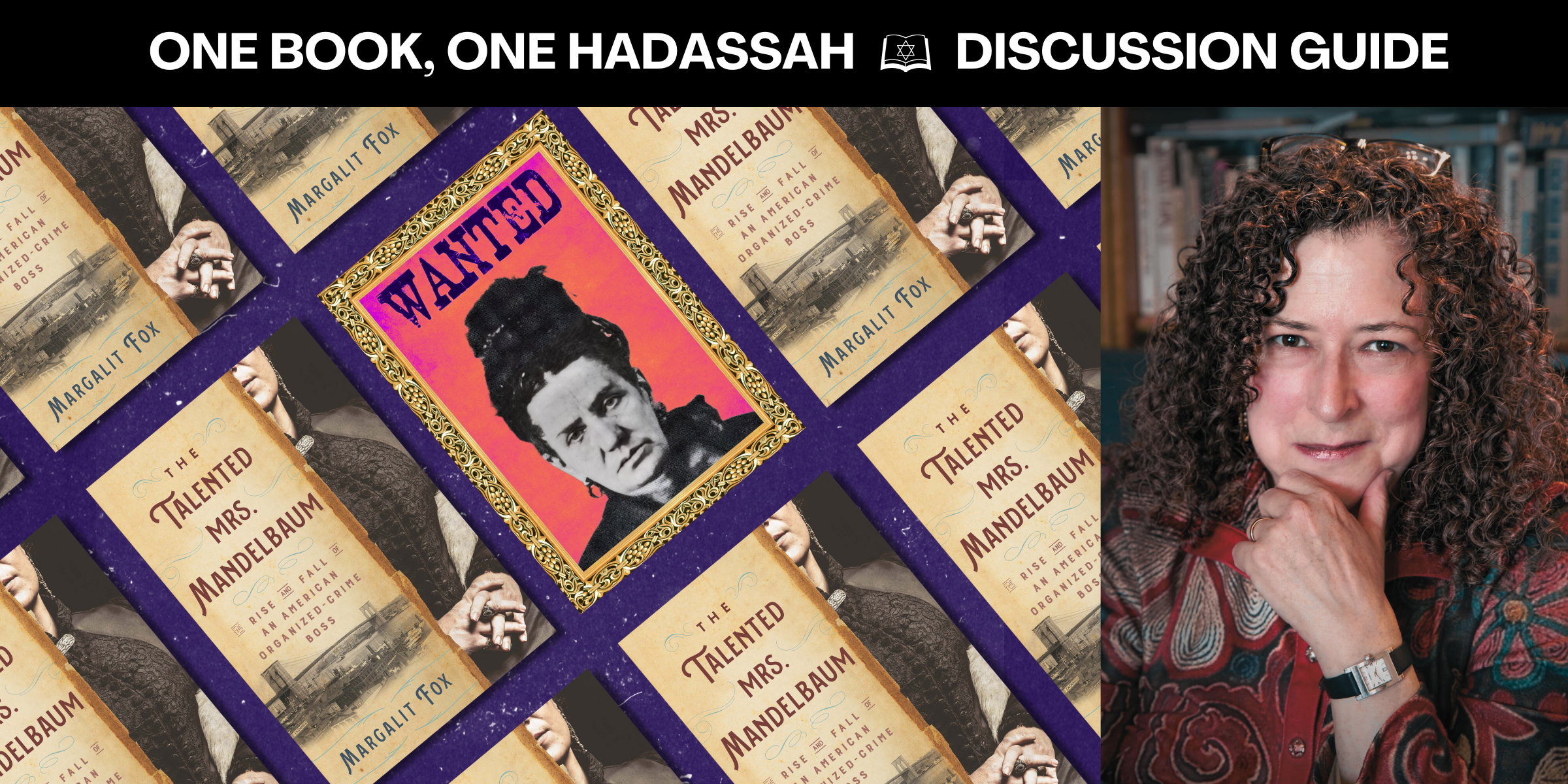Books
One Book, One Hadassah: ‘The Talented Mrs. Mandelbaum’
“Revered in some quarters, reviled in others, Marm Mandelbaum, as she was known, towered over the city as an earthy, expansive, diamond-encrusted presence: self-made entrepreneur, generous philanthropist, thieves’ mentor and gracious society hostess who plied her illicit trade largely in the open. A swath of the public admired her. Many criminals adored her… ‘Without question,’ a 20th century criminologist has written, ‘the fullest attribution of energy, presence, and personal magnetism belongs to ‘Ma’ Mandelbaum.’ ” —The Talented Mrs. Mandelbaum
Acclaimed author and journalist Margalit Fox’s captivating new biography, The Talented Mrs. Mandelbaum: The Rise and Fall of an American Organized-Crime Boss, vividly resurrects a little-known figure: a Jewish woman who reigned as one of New York City’s most notorious underworld criminal leaders during the Gilded Age.
Local book groups are a vital part of Hadassah for many members. If your chapter doesn’t already have one, now’s the time to start! We encourage groups to have their own discussions about The Talented Mrs. Mandelbaum before or after watching the virtual interview with the author. To facilitate those discussions, we present the following discussion guide.
- Author Margalit Fox writes that Fredericka Mandelbaum, who immigrated with her husband from Germany in 1850, “was marginalized three times over: immigrant, woman and Jew.” Discuss both the gender and ethnic prejudices of her time and how she upended them to become a successful crime boss. How do you think her identity as a Jew and as an immigrant influenced her path into the underworld?
- The book includes newspaper and crime journal reports from that time as well as images and cartoons of Mandelbaum. How do those representations convey the antisemitism of the era? How would you compare them to reports on Jews and Jewish concerns in the media today?
- Mandelbaum was both a pillar of the Jewish community and a criminal. What are the methods, as Fox implies in her book, that Mandelbaum used to reconcile—or even compartmentalize—these seemingly contradictory roles?
- How did Mandelbaum’s gender impact her rise to power? Would her successful criminal empire, which lasted from 1862 to 1884, have been possible in a later era of crime? Given the lasting notoriety of such Jewish crime figures as Meyer Lansky and Bugsy Siegel, why do you think she has remained a relative unknown?
- Fox mentions that in her day, Mandelbaum was renowned for both her “motherliness” and business acumen and headed what became the “de facto Ladies’ Auxiliary of Tammany Hall.” Discuss how she fostered and helped thieves, pickpockets and corrupt politicians in her orbit. How does Mandelbaum’s identity as a wife and mother as well as a crime boss challenge conventional expectations of women in the 19th century—and even today?
- How did societal changes during the Gilded Age, such as the rise of consumer culture and industrialization create opportunities for Mandelbaum? How did developments in the role and scope of law enforcement during that period affect her efforts?
- Mandelbaum’s story is set against the backdrop of the evolving landscape of New York City. How does her life reflect larger themes of immigration, urbanization and social mobility in the 19th century?
- Fox explores the parallels between Mandelbaum’s methods in recruiting and managing a network of elite criminals and the “scientific management” practices of legitimate businessmen. How does Mandelbaum’s approach to leadership compare to that of modern-day entrepreneurs or CEOs? Do you think this comparison challenges traditional notions of morality and success? Were you surprised by the level of professionalism and social hierarchy among the criminal class during Mandelbaum’s reign?
- Discuss the role that Jewish culture had in shaping Mandelbaum’s entrepreneurial spirit. How did being not only a woman but also a Jew help her succeed? Did her Jewish background help or hinder her in navigating the underworld?
- Despite her criminal career, Mandelbaum remained active in her synagogue and ensured her daughter had a Jewish burial. How do you interpret her relationship with her faith and community?
- What lessons, if any, can we draw from Mandelbaum’s life about resilience, ambition and morality in the face of economic and societal challenges?
- After reading about Mandelbaum’s life, do you view her primarily as a villain, a visionary or something in between? Why? If she were alive today and running a similar sort of crime ring, how do you think you would view her?











 Facebook
Facebook Instagram
Instagram Twitter
Twitter
Barbara C R says
I can almost comprehend her turning towards crime when I think of her six week journey in steerage on the ship. I’m not certain that I would not do the same if alternatives were not available. Her family might have faced starvation. But I don’t understand the love for expensive jewels, silk clothing, fine foods, wines… I think I would be satisfied with having enough to eat and take care of my family. Still pondering this.